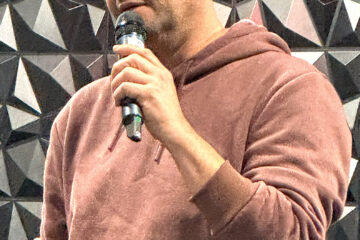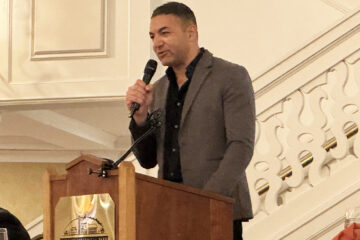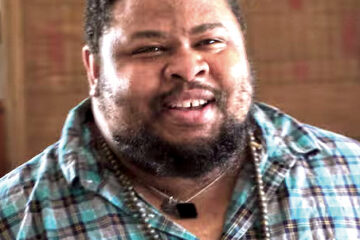For authorities of Jewish law, coronavirus has caused unprecedented flurry of questions

By Ben Harris, JTA
As the coronavirus pandemic forced Jews around the world to navigate a Passover in which large family gatherings were all but impossible, an unusual question posed to a group of Israeli rabbis led to an extraordinary answer.
The question was whether it might be permissible for families to use internet-enabled videoconferencing to celebrate the Passover seder together even as they were sequestered in separate homes.
Orthodox Jewish practice normally prohibits the use of electronics on the Sabbath and Jewish festivals, but might the unprecedented restrictions suddenly thrust upon billions of people permit an exception?
Remarkably, 14 Sephardic rabbis answered in the affirmative.
Some conditions were attached. The computer would have to be enabled prior to the onset of Passover and remain untouched for the duration of the holiday. And the leniency would only apply to the current emergency.
But given the unique importance of the seder ritual and the extreme conditions now in effect, the rabbis wrote, the use of videoconferencing technology is permitted “to remove sadness from adults and the elderly, to give them the motivation to continue to fight for their lives, and to avoid depression and mental weakness which could bring them to despair of life.”
The coronavirus pandemic has upended so many parts of life that it’s perhaps little surprise that it’s also having a significant impact in the field of Jewish law, or halacha.
The sudden impossibility of once routine facets of observant Jewish life has generated a surge in questions never considered before — and modern technology means that Jews the world over are more able than ever to ask those questions and share their answers.
“I don’t think there’s ever been anything like this because of the proliferation of questions and because of the extraordinary means of communications,” said David Berger, a historian and dean of the Graduate School of Jewish Studies at Yeshiva University.
Among the questions rabbis have had to confront during the corona crisis: Is it permissible to constitute a Jewish prayer quorum over internet-enabled videoconference? Can married couples be physically intimate if the woman cannot immerse in a ritual bath because they are closed for public health reasons? How should burials be handled if authorities prohibit Jewish rituals around the preparation of bodies? Can synagogue services be livestreamed on Shabbat?
Rabbis are also beginning to consider some agonizing possibilities. Several Conservative movement authorities have published papers about what Jewish ethics has to say about medical triage, anticipating a moment when doctors may have to make difficult choices about who gets treatment.
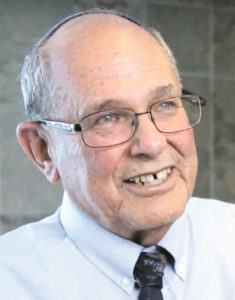
“This has been yomam valaylah — it’s been day and night,” said Rabbi Elliott Dorff, the co-chair of the Committee on Jewish Law and Standards, the Conservative movement’s authority on questions of Jewish law. “Once this is all over, this is going to be a really interesting case study of how halacha evolves quickly when it needs to.”
In Romania, the government’s recent declaration that any coronavirus fatalities had to be buried immediately presented Chief Rabbi Rafael Shaffer with a tortuous dilemma: What if a Jewish person died on Shabbat? Burying the body immediately would have resulted in a clear violation of the Jewish Sabbath, but allowing the body to be cremated is also a severe violation of Jewish law.
“The burial should be done on Shabbat if necessary,” Shaffer told the Jewish Telegraphic Agency after consulting with rabbinic authorities in Israel. “If it’s the only possibility to avoid cremation, then it should be done on Shabbat by non-Jews.”
For the moment, that situation remains in the realm of the theoretical. But other halachic questions are of urgent necessity. Many of the recent opinions have explicitly invoked the principle of she’at had’chak — literally time of pressure, a concept in Jewish law that permits a reliance on less authoritative opinions in emergency situations.
“No one thinks you can permit biblical violations for a pressure that doesn’t amount to threatening lives,” said Rabbi Aryeh Klapper, the Orthodox dean of the Center for Modern Torah Scholarship. “But maybe you can rely on less authoritative understandings of what the biblical prohibition is.”
The Conservative movement, which tends to take a more flexible line on matters of Jewish law than Orthodox authorities, has supported a number of leniencies under the rubric of she’at had’chak.
In March, Dorff and his law committee co-chair, Rabbi Pamela Barmash, issued an opinion permitting a prayer quorum to be constituted over internet-enabled videoconference. That opinion, which temporarily suspended a nearly unanimous 2001 ruling that such a quorum was not permissible, would enable the recitation of the Mourner’s Kaddish by people isolated in their homes. Common practice is that the mourner’s prayer can only be said if 10 Jewish adults are gathered in one physical location.
The law committee also has expressed support for loosening various restrictions around physical touch between married couples should Jewish ritual baths be forced to close. Couples that closely observe Jewish law traditionally refrain from any form of touch for the period of the woman’s menstruation and for a week after, resuming contact only after immersion in a mikvah.
But the committee posted a letter on its website from Rabbi Joshua Heller asserting that under certain circumstances, and only for the period of the coronavirus crisis, a woman could resume sexual relations with her husband after showering in 11.25 gallons of water — a rough approximation of the Talmudic measure of 40 kabim.
“I think we are learning from earlier historical epochs of crisis and taking inspiration from the flexibility that our predecessors showed,” said Rabbi Daniel Nevins, a committee member and the dean of the rabbinical school at the Jewish Theological Seminary.
To be sure, not all rabbis have accepted these leniencies.
After Rabbi Daniel Sperber, a liberal Orthodox rabbi in Israel, issued an opinion permitting some forms of physical touch between married couples should ritual baths become inaccessible, another Israeli Orthodox rabbi, Shmuel Eliyahu, called the opinion a “complete mistake.”
Israel’s two chief rabbis, David Lau and Yitzhak Yosef, said the opinion permitting videoconferencing at the seder was “unqualified.”
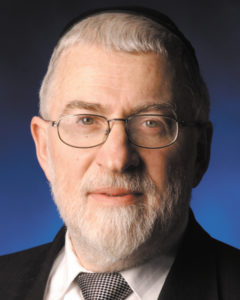
And Rabbi Hershel Schachter, a leading Orthodox authority at Yeshiva University, wrote recently that a prayer quorum could not be constituted by participants standing on nearby porches — even if they could all see each other.
“The 10 men must all be standing in the same room,” Schachter wrote.
But Schachter, who has personally published no less than a dozen opinions on matters related to coronavirus, has shown flexibility in other areas.
Schachter has ruled that a patient discharged from a hospital on Shabbat can be driven home by a family member because it’s dangerous to remain in the hospital longer than necessary and taxis carry their own risks of coronavirus transmission. He has said that isolated individuals who suffer from psychological conditions that might endanger their lives if they were unable to communicate with family may use phone or internet to communicate on a Jewish holiday.
And in a ruling that had wide applicability when many people prepared to host Passover meals for the first time, he suggested a workaround for the obligation of immersing utensils in a ritual bath before using them. Since baths are now closed for such purposes, Schachter ruled that one could use the utensils without immersion by first declaring them legally ownerless — a workaround that would normally not be permitted.
Many rabbis have expressed concern that such loosening of the rules, even if expressly done only to address a pressing (and presumably temporary) need, might nevertheless create new norms of behavior that will outlast the current crisis. If so, it wouldn’t be the first time.
According to a recent article by Rabbi Elli Fisher, during the 19th-century cholera epidemic, there were so many mourners that Rabbi Akiva Eger, who led the Jewish community in Poznan, Poland ruled that it was permissible for many mourners to recite the Mourner’s Kaddish simultaneously. At the time, the practice was that only one person recited Kaddish at a time.
Given the numbers of the dead, that practice would have left people with few opportunities to recite the mourner’s prayer. The practice of reciting the Mourner’s Kaddish as a group remains the dominant one in synagogues today.
“I do think that our people are wise enough and insightful enough to understand the difference between this crisis situation and normal situations,” Barmash said. “I think in some sense that fear is giving in to a low opinion of our people. And I think that our people are wise and insightful and do recognize the distinction.”
To read the complete May 2020 Dayton Jewish Observer, click here.


